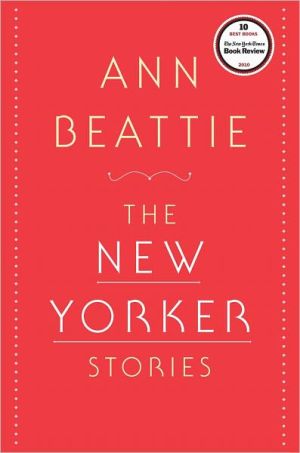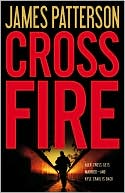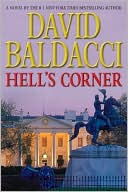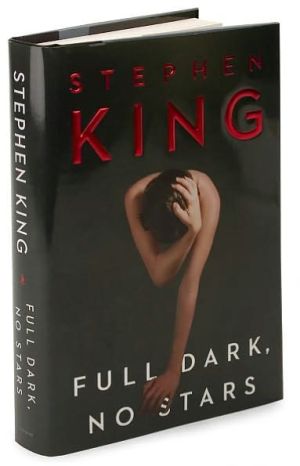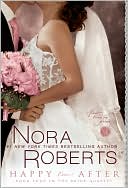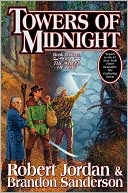The New Yorker Stories
When Ann Beattie began publishing short stories in The New Yorker in the mid-seventies, she emerged with a voice so original, and so uncannily precise and prescient in its assessment of her characters’ drift and narcissism, that she was instantly celebrated as a voice of her generation. Her name became an adjective: Beattiesque. Subtle, wry, and unnerving, she is a master observer of the unraveling of the American family, and also of the myriad small occurrences and affinities that unite us....
Search in google:
Skeletons\ Usually she was the artist. Today she was the model. She had on sweatpants—both she and Garrett wore medium, although his sweatpants fit her better than they did him, because she did not have his long legs—and a Chinese jacket, plum-colored, patterned with blue octagons, edged in silver thread, that seemed to float among the lavender flowers that were as big as the palm of a hand raised for the high-five. A frog, Nancy thought; that was what the piece was called—the near-knot she fingered, the little fastener she never closed.\ It was late Saturday afternoon, and, as usual, Nancy Niles was spending the day with Garrett. She had met him in a drawing class she took at night. During the week, he worked in an artists’ supply store, but he had the weekends off. Until recently, when the weather turned cold, they had often taken long walks on Saturday or Sunday, and sometimes Kyle Brown—an undergraduate at the University of Pennsylvania, who was the other tenant in the rooming house Garrett lived in, in a run-down neighborhood twenty minutes from the campus—had walked with them. It was Kyle who had told Garrett about the empty room in the house. His first week in Philadelphia, Garrett had been in line to pay his check at a coffee shop when the cashier asked Kyle for a penny, which he didn’t have. Then she looked behind Kyle to Garrett and said, “Well, would you have a penny?” Leaving, Kyle and Garrett struck up the conversation that had led to Garrett’s moving into the house. And now the cashier’s question had become a running joke. Just that morning, Garrett was outside the bathroom, and when Kyle came out, wrapped in his towel, he asked, “Well, got a penny now?”\ It was easy to amuse Kyle, and he had a lovely smile, Nancy thought. He once told her that he was the first member of his family to leave Utah to go to college. It had strained relations with his parents, but they couldn’t argue with Kyle’s insistence that the English department at Penn was excellent. The landlady’s married daughter had gone to Penn, and Kyle felt sure that had been the deciding factor in his getting the room. That and the fact that when the landlady told him where the nearest Episcopal church was, he told her that he was a Mormon. “At least you have some religion,” she said. When she interviewed Garrett and described the neighborhood and told him where the Episcopal church was, Kyle had already tipped him; Garrett flipped open a notebook and wrote down the address.\ Now, as Garrett and Nancy sat talking as he sketched (Garrett cared so much about drawing that Nancy was sure that he was happy that the weather had turned, so he had an excuse to stay indoors), Kyle was frying chicken downstairs. A few minutes earlier, he had looked in on them and stayed to talk. He complained that he was tired of being known as “the Mormon” to the landlady. Not condescendingly, that he could see—she just said it the way a person might use the Latin name for a plant instead of its common one. He showed them a telephone message from his father she had written down, with “MORMON” printed at the top.\ Kyle Brown lived on hydroponic tomatoes, Shake ’n Bake chicken, and Pepperidge Farm rolls. On Saturdays, Garrett and Nancy ate with him. They contributed apple cider—smoky, with a smell you could taste; the last pressing of the season—and sometimes turnovers from the corner bakery. Above the sputtering chicken Nancy could hear Kyle singing now, in his strong baritone: “The truth is, I nev-er left you . . .”\ “Sit still,” Garrett said, looking up from his sketchbook. “Don’t you know your role in life?”\ Nancy cupped her hands below her breasts, turned her head to the side, and pursed her lips.\ “Don’t do that,” he said, throwing the crayon stub. “Don’t put yourself down, even as a joke.”\ “Oh, don’t analyze everything so seriously,” she said, hopping off the window seat and picking up the conté crayon. She threw it back to him. He caught it one-handed. He was the second person she had ever slept with. The other one, much to her embarrassment now, had been a deliberate experiment.\ “Tell your shrink that your actions don’t mean anything,” he said.\ “You hate it that I go to a shrink,” she said, watching him bend over the sketchbook again. “Half the world sees a shrink. What are you worried about—that somebody might know something about me you don’t know?”\ He raised his eyebrows, as he often did when he was concentrating on something in a drawing. “I know a few things he doesn’t know,” he said.\ “It’s not a competition,” she said.\ “Everything is a competition. At some very serious, very deep level, every single thing—”\ “You already made that joke,” she said, sighing.\ He stopped drawing and looked over at her in a different way. “I know,” he said. “I shouldn’t have taken it back. I really do believe that’s what exists. One person jockeying for position, another person dodging.”\ “I can’t tell when you’re kidding. Now you’re kidding, right?”\ “No. I’m serious. I just took it back this morning because I could tell I was scaring you.”\ “Oh. Now are you going to tell me that you’re in competition with me?”\ “Why do you think I’m kidding?” he said. “It would kill me if you got a better grade in any course than I got. And you’re so good. When you draw, you make strokes that look as if they were put on the paper with a feather. I’d take your technique away from you if I could. It’s just that I know I can’t, so I bite my tongue. Really. I envy you so much my heart races. I could never share a studio with you. I wouldn’t be able to be in the same room with somebody who can be so patient and so exact at the same time. Compared to you, I might as well be wearing a catcher’s mitt when I draw.”\ Nancy pulled her knees up to her chest and rested her cheek against one of them. She started to laugh.\ “Really,” he said.\ “O.K.—really,” she said, going poker-faced. “I know, darling Garrett. You really do mean it.”\ “I do,” he said.\ She stood up. “Then we don’t have to share a studio,” she said. “But you can’t take it back that you said you wanted to marry me.” She rubbed her hands through her hair and let one hand linger to massage her neck. Her body was cold from sitting on the window seat. Clasping her legs, she had realized that the thigh muscles ached.\ “Maybe all that envy and anxiety has to be burnt away with constant passion,” she said. “I mean—I really, really mean that.” She smiled. “Really,” she said. “Maybe you just want to give in to it—like scratching a mosquito bite until it’s so sore you cry.”\ They were within seconds of touching each other, but just at the moment when she was about to step toward him they heard the old oak stairs creaking beneath Kyle’s feet.\ “This will come as no surprise to you,” Kyle said, standing in the doorway, “but I’m checking to make sure that you know you’re invited to dinner. I provide the chicken, sliced tomatoes, and bread—right? You bring dessert and something to drink.”\ Even in her disappointment, Nancy could smile at him. Of course he knew that he had stumbled into something. Probably he wanted to turn and run back down the stairs. It wasn’t easy to be the younger extra person in a threesome. When she raised her head, Garrett caught her eye, and in that moment they both knew how embarrassed Kyle must be. His need for them was never masked as well as he thought. The two of them, clearly lovers, were forgoing candlelight and deliberately bumped knees and the intimacy of holding glasses to each other’s lips in order to have dinner with him. Kyle had once told Nancy, on one of their late-fall walks, that one of his worst fears had always been that someone might be able to read his mind. It was clear to her that he had fantasies about them. At the time, Nancy had tried to pass it off lightly; she told him that when she was drawing she always sensed the model’s bones and muscles, and what she did was stroke a soft surface over them until a body took form.\ Kyle wanted to stay close to them—meant to stay close—but time passed, and after they all had moved several times he lost track of them. He knew nothing of Nancy Niles’s life, had no idea that in October, 1985, she was out trick-or-treating with Garrett and their two-year-old child, Fraser, who was dressed up as a goblin for his first real Halloween. A plastic orange pumpkin, lit by batteries, bobbed in front of her as she walked a few steps ahead of them. She was dressed in a skeleton costume, but she might have been an angel, beaming salvation into the depths of the mines. Where she lived—their part of Providence, Rhode Island—was as grim and dark as an underground labyrinth.\ It was ironic that men thought she could lead the way for them, because Nancy had realized all along that she had little sense of direction. She felt isolated, angry at herself for not pursuing her career as an artist, for no longer being in love. It would have surprised her to know that in a moment of crisis, late that night, in Warrenton, Virginia, when leaves, like shadows on an X ray, suddenly flew up and obscured his vision and his car went into a skid, Kyle Brown would see her again, in a vision. Nancy Niles! he thought, in that instant of fear and shock. There she was, for a split second—her face, ghostly pale under the gas-station lights, metamorphosed into brightness. In a flash, she was again the embodiment of beauty to him. As his car spun in a widening circle and then came to rest with its back wheels on an embankment, Nancy Niles the skeleton was walking slowly down the sidewalk. Leaves flew past her like footsteps, quickly descending the stairs.\ © 2010 Ann Beattie
\ Publishers WeeklyStarred Review. \ Gathered in chronological order from 1974 to 1986, these early stories elucidate tension, suspicion, and the uneasy truces between married and divorced couples. Women are in flux and a general malaise settles over the urban dwellers or small town transplants, with notable departures. Though readers may be tempted to regard Beattie's characters as emblematic of their time, even as uniquely "American" in their self-involved, luxurious problems, they have weathered well and transcend easy classification. Beattie has mastered the tango between intelligent, sometimes perplexed individuals, allowing gradual, believable erosions to stand in place of high drama. "The Cinderella Waltz" draws an empathetic triangulation between the narrator, her ex-husband, and his current partner; "Home to Marie" offers a cruel take on unfulfilled expectations. Taken in full, these stories are taut evocations of separation and resignation, even as they reveal tenderness, and the best of them portray love and hatred not as intense polarities, but as tempered forces with fine gradations.\ (c) Copyright PWxyz, LLC. All rights reserved.\ \ \ \ \ \ Library JournalIn this book of 48 of her short stories published in The New Yorker magazine, Beattie captures four decades of relationship difficulties. Beginning in the 1970s, the stories feature characters who have lost their way: pot-smoking, jobless drifters; spacey women in dying marriages; children caught in their parents' breakups. Beattie's staccato prose and abrupt endings leave one to wonder, not unpleasantly, what the future holds for these characters. In her later works, Beattie's voice warms and expands as her stories become richer and fuller, with an added sense of humor. Standout titles in this time period include "The Rabbit Hole as Likely Explanation," which relates a middle-aged woman's struggle to deal with her very funny aging mother; and "That Last Odd Day in L.A.," where a widower's sharp wit ostracizes him from everyone in Hollywood but his rich niece and nephew. VERDICT This is a fine collection of stories about characters whose failures to connect with others become Beattie's success as she astutely and wittily plumbs the depths of human relations.—Joy Humphrey, Pepperdine Univ. Law Lib., Malibu, CA\ \ \ Kirkus ReviewsA generous gathering of 48 stories first published in the eponymous weekly often defined by Beattie's trademark understatements, ellipses and—let's admit it—occasionally clichéd situations and plots.\ Not all her best stories (e.g., "Jacklighting," "Windy Day at the Reservoir," "Park City") share this lineage. But this big volume includes numerous seminal and influential portrayals of sensitive, self-absorbed young urban professionals succumbing to passivity and indifference, and eventually growing up and into a fuller engagement with the larger world's claims on their rudimentary attention spans. Fashionable angst and forced eccentricity sometimes blur focus and blunt force in stories that feel insubstantial—a woman's resentment of her husband's supposed infidelities in "Downhill"; a defrocked fashion model's yearning to reconstruct her unhappy life in "Colorado"; and an unattractive woman's history of failed relationships in "Wolf Dreams." Yet when Beattie eludes the entrapments of quotidian cliché, she commands a crisp, understated prose style and a talent for manipulating viewpoints into new ways of observing done-to-death conflicts. In "Snakes' Shoes," the breakup of a storybook marriage is felt most keenly by a sorrowful, silent brother-in-law. "Fancy Flights" looks at broken relationships through several variously sympathetic eyes—including those of a family dog. Elsewhere, Beattie displays increasingly more complex understanding of the varieties of awakened regrets and aroused fears of the looming presences of age and enfeeblement. In "Janus," a gift from a former lover stimulates a complex meditation on the enduring, shaping power of the past; and "The Burning House" flawlessly dramatizes the moral awakening of a shallow woman doomed to understand that her closest friends are virtual strangers to her.\ Beattie (Walks with Men, 2010, etc.) sometimes stumbles, but her mordant and frequently comic depictions of ways in which we persevere, screw up and usually survive our own foolishness give her better stories genuine power, and make them well worth returning to.\ \ \ \ \ \ From the Publisher“Beattie captures the milieu perfectly… An in-depth study of a subculture and a staggering almanac of emotions.”—Entertainment Weekly\ “The collection is not so much a museum of past work as a dynamic, entertaining, 32-year exploration of the form-a reminder that, in the hands of a career virtuoso, the short story is very much alive.”—Nathan Heller, Slate\ \ \
